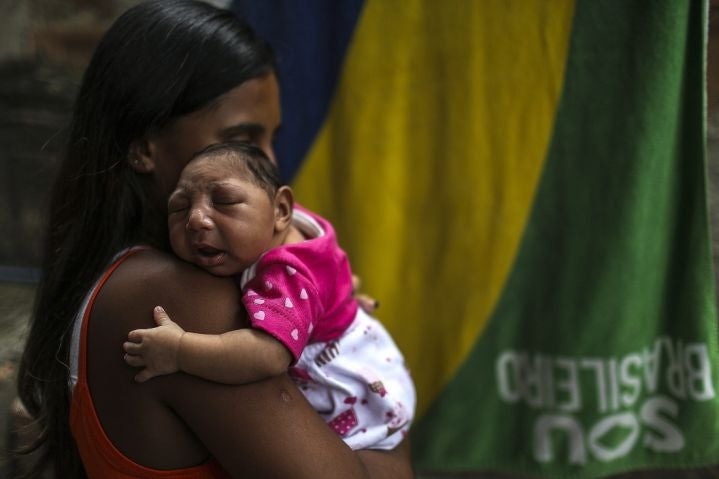Pope Francis says birth control 'isn't an absolute evil' in areas hit by Zika virus
'I would also ask doctors to do their utmost to find vaccines against these mosquitoes that carry this disease. This needs to be worked on'

Pope Francis has said artifical contraception should be viewed “as the lesser of two evils” for women with the Zika virus.
Speaking as the disease continues to spread through Central and South America, the pontiff compared the situation to a decree issued by Pope Paul VI which said nuns in Africa could use birth control due to the threat of rape.
He said: "Avoiding pregnancy is not an absolute evil.
"In certain cases, as in this one, such as the one I mentioned of Blessed Paul VI, it was clear.
“I would also ask doctors to do their utmost to find vaccines against these mosquitoes that carry this disease. This needs to be worked on."
The Catholic Church says the only acceptable form of birth control is abstinence - but did permit certain forms of natural family planning such as the rhythm method in 1968.
Francis' predecessor Pope Benedict XVI also said that condoms were permissible in "exceptional circumstances" in 2010 - if the intention of using them is to avoid the transmission of viruses like HIV rather than birth control.
It comes as the Vatican said pregnant women with Zika - which has been linked to the birth defect microcephaly - should not be allowed to have abortions.
A statement from the Holy See said: "Not only is increased access to abortion and abortifacients an illegitimate response to this crisis, but since it terminates the life of a child it is fundamentally not preventative.
“Regardless of the connection to the Zika virus, it is a fact of human existence that some children develop conditions like microcephaly, and that these children deserve to be protected and cared for throughout their lives, in accordance with our obligation to safeguard all human life, healthy and disabled, with equal commitment, leaving no one behind."
Abortion is illegal in many Latin American countries where the Zika virus is most prevalent - leading many women to “beg” online for abortion pills.
Pope Francis said although contraception may be permissible in certain circumstances abortion remains “an absolute evil” regardless of the microcephaly risk.

Microcephaly means babies are born with abnormally small skulls - which leads to severe developmental problems as the child grows.
On Thursday, the World Health Organisation released new guidelines on how to prevent the spread of the disease.
It recommended both men and women returning from areas where the virus has spread to adopt safer sex practices such as using condoms or consider abstinence for at least a month.
The virus most commonly spread by mosquito bites but can be transmitted by sexual contact and blood transfusions.
Join our commenting forum
Join thought-provoking conversations, follow other Independent readers and see their replies
Comments
Bookmark popover
Removed from bookmarks